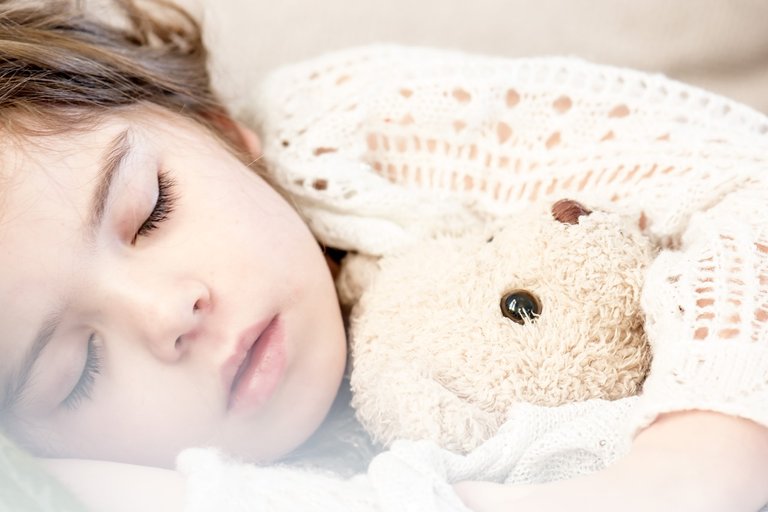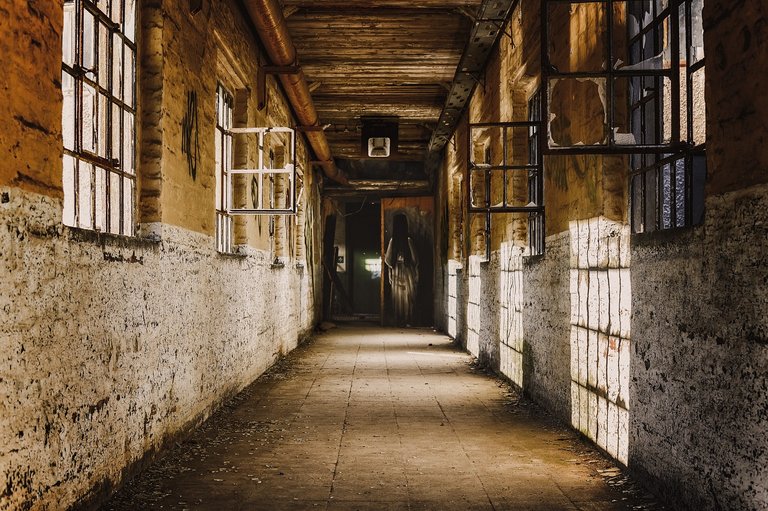Hey StemSocial, before we begin, let me paint this picture. Imagine a night with the moon shining, shadows moving on the walls, and you're wandering through a maze of winding halls. The air feels heavy with a spooky vibe, and a feeling of impending danger fills the surroundings. Suddenly, as you round a corner, a terrifying figure appears from the darkness, giving you a chilling sensation. You attempt to scream, but your voice gets lost in the silent night. It's not a horror movie scene; it's a glimpse into the mysterious realm of nightmares.

Nightmares, those intense and unsettling dreams that bring fear and anxiety, continue to be a topic of interest for scientists. Although dreams have fascinated people for a long time, nightmares, in particular, spark a mix of curiosity and unease. This post aims to explain why nightmares happen, considering both scientific and evolutionary viewpoints.
1. Evolutionary Roots:
The idea is that nightmares might have evolved as a way for our ancestors to prepare for potential threats. Essentially, when we have scary dreams, it's like our brains are running simulations of dangerous situations. This could have helped our early human predecessors get better at dealing with real-life dangers when they were awake. While this survival function might not be as crucial in our modern world, it could still be a leftover trait from our distant past, tucked away in our subconscious. For example, imagine a prehistoric human dreaming about being chased by a wild animal. This dream experience might have honed their instincts and reactions, making them more adept at facing similar challenges when awake.
2. Psychological Factors:
The emergence of nightmares is often linked to psychological factors. Stress, anxiety, and unresolved trauma can make their way into our dreams, turning the subconscious mind into a stage where our unresolved emotions take center stage. For example, someone who has gone through a traumatic experience might experience nightmares as their mind tries to process the intense emotions and make sense of distressing memories. Think of a person who has witnessed a car accident; they might have nightmares featuring scenes of crashes or chaos, reflecting the unprocessed emotions tied to the traumatic event. In this way, nightmares can be a psychological outlet for dealing with unresolved feelings and experiences.
3. REM Sleep and Brain Activity:
The Rapid Eye Movement (REM) stage is the key to understanding nightmares. This phase involves a lot of brain activity and vivid dreams, like watching a mental movie while you're in a deep sleep. If anything disrupts this complex process, it can lead to really intense and scary dreams. Studies show that issues with how brain chemicals (neurotransmitters) work during REM sleep are connected to having more nightmares. To put it simply, imagine your brain as a conductor directing a dream orchestra in REM sleep. If the chemical instruments aren't playing well together, it can result in unsettling dreams, like being chased or facing threatening situations.

4. Neurobiological Mechanisms:
Nightmares can be affected by neurobiological factors, including issues with neurotransmitters like serotonin and norepinephrine. When there are changes in the levels of these chemical messengers, it can mess with mood regulation, leading to emotional disruptions that show up as nightmares. Picture it like this: if the chemicals in your brain that control how you feel are out of balance, it could stir up unsettling emotions in your dreams. Moreover, the amygdala, a crucial part of the brain that deals with emotions, might become super active. This heightened activity can intensify emotional reactions, creating vivid dream scenarios filled with fear and anxiety. Imagine someone experiencing a surge in stress, causing changes in neurotransmitter levels and amping up amygdala activity; this could result in nightmares featuring intense emotional and scary elements.
5. External Influences:
Lastly, nightmares can be triggered by environmental factors like not getting enough sleep, taking specific medications, or using substances like drugs. When your sleep routine gets messed up or you introduce psychoactive substances into the mix, it can throw off the delicate balance needed for a good night's rest and this disruption opens the door for unsettling dreams to sneak in and make your night less peaceful. For example, consider someone who pulls an all-nighter or takes a medication that affects their sleep; they might find themselves experiencing more disturbing dreams due to these environmental factors messing with their usual sleep patterns.
Conclusion:
Exploring the mysteries of nightmares reveals that a combination of evolutionary, psychological, and neurobiological factors plays a role in why they happen. As we delve deeper into understanding how these elements interact, we might uncover ways to help and gain insights into the mysterious world of our minds during sleep. Although nightmares can still be puzzling and unsettling, the journey to understand them allows us to better appreciate the complex workings of the human psyche.
Thanks for reading! I would be happy to hear from you in the comment section. Have a great night tonight, free from nightmares.
Willy.
References and Further Studies:
https://nypost.com/2022/06/19/the-science-behind-nightmares-and-most-common-scary-dreams/
https://www.sleepfoundation.org/nightmares
https://www.livescience.com/32730-why-do-we-have-nightmares.html
https://wakefitco.medium.com/what-are-nightmares-made-of-heres-the-science-behind-them-f8b5f3a1d5f8
This is Interesting!
I rarely have nightmares, but when they do happen, I always remember them. I've dreamt of being chased by ghosts, a huge black snake, people putting their hands over my mouth, and many more.
In the past, I had a lot of trouble sleeping to the point where I had to ask the doctor for sleeping pills. There were also times when I was taking antidepressants along with tranquilizers, which made me dream constantly, but I don't remember those dreams.
Now, since I stopped taking medication from the psychiatrist, I rarely dream. But reading your writing made me realize that I have indeed experienced all of those things.🤭
I appreciate you sharing your personal experiences with nightmares and how medication has influenced your dream patterns. It's fascinating how our sleep experiences can be shaped by various factors, as discussed in my article. If you have some particular experiences you remember could be the cause, feel free to share them. Would really love to hear it.
Sweet dreams mell! 😊
Sure, someday I might write about it on my blog. Good night to you too and sweet dream. I'm very tired today. Only now do I have the chance to reply to all the notifications. 🥴
Would definitely be waiting for that article. ♥️ Thanks for reading and commenting.
haha! "thanks for reading and commenting " <-- I remembered about the thing we discussed during the HHH show.😂
😂. But for real, am naturally a grateful person.
🫣 ,Ok, I fully support you.